Space

Educators and Parents, Sign Up for The Cheat Sheet
Weekly updates to help you use Science News Explores in the learning environment
Thank you for signing up!
There was a problem signing you up.
-
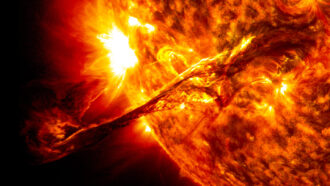 Space
SpaceScientists Say: Solar Cycle
This roughly 11-year cycle in the sun’s activity can affect space weather that messes with Earthly technology.
-
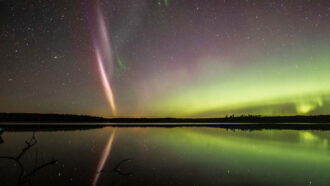 Earth
EarthThe weird sky glow called STEVE is really confusing scientists
Researchers are trying to figure out the recipe of atmospheric conditions that creates this aurora-like light show.
-
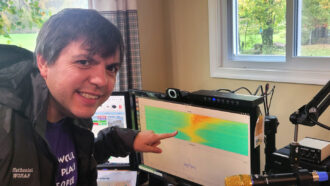 Space
SpaceThis space physicist uses radios to study eclipses
Nathaniel Frissell uses radio data to study how eclipses affect a layer of the atmosphere called the ionosphere.
-
 Planets
PlanetsHuge polygons on Mars hint its equator may once have been frozen
A Chinese rover used radar to reveal long-buried terrain. The discovery hints that Mars’ equator was once much colder and wetter.
By Elise Cutts -
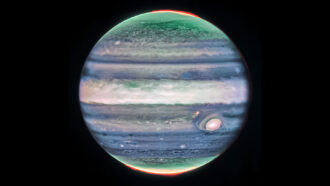 Planets
PlanetsJupiter has a never-before-seen jet stream — and it’s speedy
Spotted in images from the James Webb telescope, the high-altitude current may help untangle the workings of the giant planet’s atmosphere.
-
 Space
SpaceBlack holes and activism inspire this astrophysicist
Mallory Molina is looking for supermassive black holes — and helping others find their place in the field of astronomy.
-
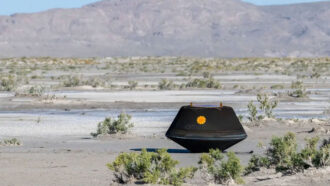 Space
SpaceNASA’s OSIRIS-REx spacecraft brought back bits of the asteroid Bennu
Dirt from the asteroid Bennu could hold clues about the material that built our solar system — and possibly where life comes from.
-
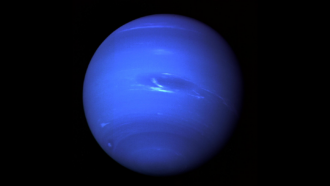 Planets
PlanetsAnalyze This: Neptune’s cloud cover syncs up with the solar cycle
Telescope observations hint how sunlight-driven chemistry may boost cloud cover on our solar system’s farthest planet.
-
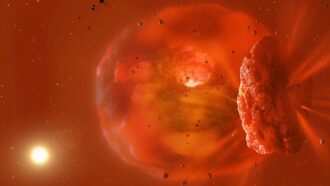 Planets
PlanetsIn a first, astronomers spot the aftermath of an exoplanet smashup
Infrared light from a distant star appears to be leftovers of an impact between a pair of Neptune-sized worlds.
By Elise Cutts -
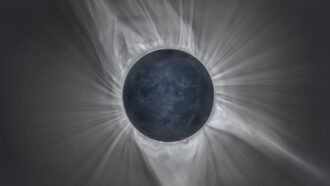 Space
SpaceYou can get involved in science during the 2024 solar eclipse
The sun will be near the peak of its activity cycle during the eclipse on April 8, 2024. That will make it a great time to crowdsource solar research.
-
 Physics
PhysicsScientists Say: Gamma ray
Lightning bolts, nuclear explosions, colliding stars and black holes all throw off this high-energy type of light.
-
 Tech
TechHuman teleportation? This century we’re stuck doing it virtually
If teleportation is defined as being transported instantly to another place, then it’s already happening — via extended reality and holograms.
By Payal Dhar